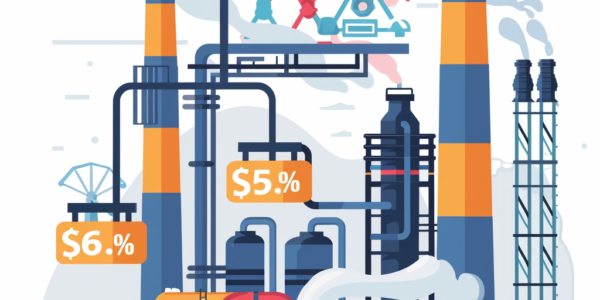Voters in Swing States Feel Positive About Personal Finances Despite Negative Sentiment Towards National Economy
Recent polling shows that while voters in swing states have a negative view of the national economy, they feel positive about their personal finances. This raises questions about individual perceptions of the economy. Despite positive economic indicators, there seems to be a disconnect between macroeconomic data and individual outlooks.
Rising Egg Prices and the Impact of Avian Influenza
The cost of eggs has doubled since 2020, driven by factors such as increased demand around Easter, inflation, and the impact of avian influenza on hen populations. Avian influenza has led to a reduction in the number of hens producing eggs, resulting in a decrease in supply and driving up the average cost of a dozen eggs from $1.50 in 2020 to $4.20 in 2023. Poultry operations are vulnerable to avian influenza outbreaks, further constraining the supply of eggs. Farmers in central Texas have been affected by the surge in demand and escalating price of animal feed, leading to increased production costs and higher egg prices. Despite the challenges, local farmers remain committed to meeting customer needs and keeping costs as low as possible.
Household Responses to High Inflation: Consumption, Saving, and Income Strategies
Households have faced significant challenges due to high inflation triggered by supply bottlenecks and energy price surges. According to the ECB’s Consumer Expectations Survey, consumers have adjusted their consumption, savings, and income strategies in response to elevated prices. The data indicates that consumers have resorted to measures such as shopping around, trading down to lower quality products, and reducing quantities purchased. The findings shed light on how households have adapted their spending and saving behavior in the face of high inflation, providing valuable insights into consumer resilience and adaptation during challenging economic conditions.
Short-maturity Treasuries Surge After Fed Confirms Interest-Rate Cuts
Short-maturity Treasuries surged after the Federal Reserve confirmed three interest-rate cuts this year, easing market concerns. Yields on two-year debt dropped, with traders now anticipating approximately 77 basis points of cuts this year. The Fed’s decision appeared more dovish than expected, leading to a rally in short-end bonds and higher inflation-expectations. The market’s reaction to the Fed’s decision will continue to shape investment strategies and market dynamics.
Americans bear financial burden as Fed meeting approaches
Americans are feeling the financial strain of increased loan costs due to Federal Reserve interest rate hikes. With the central bank meeting, experts predict rates will remain steady for now, but consumers may see relief in June. The Fed’s reaction to economic data will provide hints about future rate changes.
India’s Retail Inflation Eases to 5.09% in February
India’s retail inflation eased to 5.09% in February, slightly dropping from the previous month’s 5.10%. This aligns with economists’ expectations and remains within the RBI’s tolerance band. Additionally, the article provides insights into India’s industrial production growth and the RBI’s inflation forecast.
The Fed’s Data Dependency Risks Causing Mistakes
The Federal Reserve’s heavy reliance on economic data has led to potential policy mistakes and increased market volatility. The focus on data has caused the Fed to fall behind in its inflation battle and make repeated forecasting errors. This excessive data dependency risks keeping interest rates too restrictive for too long, leading to output loss, higher unemployment, and financial instability. The analogy of driving a car by looking in the rear-view mirror rather than through the windshield illustrates the potential problems with the Fed’s approach to data dependency.
US Inflation Expected to Slow Further as Labor Pool Expands
US inflation is down from a four-decade high as the labor force grows. Economists are optimistic about the potential for a ‘soft landing’ and reduced pressure on wages and labor costs.
Time For Powell To Take Control
The Federal Reserve needs to regain control of the equity market and address rising inflation expectations. Investors are looking to the Fed for guidance and action, as the central bank’s ability to manage inflation and stabilize the equity market is crucial for restoring confidence and sustaining economic growth.
Canadians Seek Cheaper Grocery Options
A new survey reveals that many Canadians are switching grocery stores in search of lower prices, with nearly 60 per cent consistently seeking out discounted food products. The high cost of groceries has led 64 per cent of Canadians to believe that inflation at the grocery store is worsening. With every dollar counting, families are prioritizing deals, as evidenced by one shopper who spends $300 per week on groceries and goes where the savings are. The survey also found that stores run under Loblaw are the top destination for discounted food, followed by Walmart, Costco, Metro/Foodbasics, and Giant Tiger.










